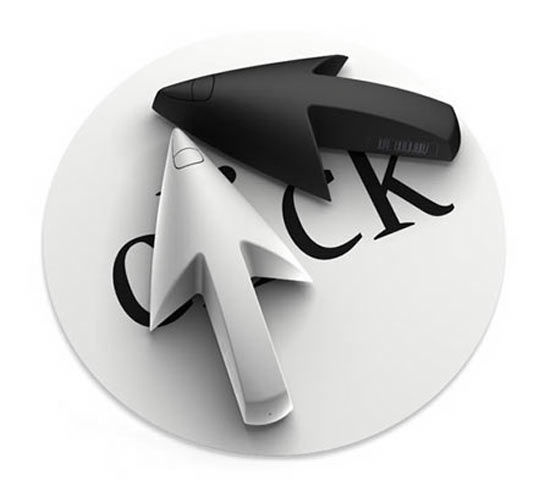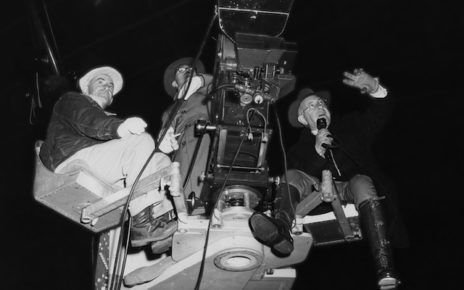Why Copyright My Music?
If you see yourself as a serious musician (and I presume you do), you would be wise to register your original songs with the U.S. Copyright Office (if you reside outside of the U.S., skip to the section on International Copyright below).
This will protect you in the event that someone, somewhere, steals one of your songs and claims it as their own. Whether you want to copyright just one song for possible digital distribution or an entire CD of collected works, the process is the same.
The eCO Online System
The U.S. Copyright Office encourages you to register your music via an online registration process called the eCO Online System.
Once you go there, create an account for yourself, then log in and you’re ready to start. Registering a copyright via this process is not all that difficult, but the technical language can be confusing.
The online process does walk you step-by-step through filling out the document, but even so, take your time. Carefully read the help links (the underlined text) provided each step of the way. If you do that, it will help you understand what information goes where.
You’ll find a copyright tutorial for the eCO system at http://www.copyright.gov/eco/eco-tutorial.pdf . I recommend you take a look at that before you undertake this process to see what you’re in for.
The filing fee for online song registration is $35.
A few tips regarding the eCO process that I think might help you:
- You’ll want to register your music as a “sound recording” as this kind of registration includes not only the performance, but the underlying music itself.
- Under “Title of Work” add the name of your CD first and set the “Type” as “Title of work being registered.” Then list your song titles and set the “Type” for those as “Contents Title.” So the album name is the “Title,” the individual songs are the “Contents.”
- If you have cover songs on your album, you’ll exclude those under the “Limitation of Claim” section. For example, if track 7 on your CD is a cover tune, under “Material Excluded” check the boxes for “Music” and “Lyrics” (if you have lyrics) and then in the space for “Other” indicate “Track 7.” Then under “New Material Included” check all the boxes and under “Other” list the track numbers for your original songs. So here you specify what tracks to exclude for copyright registration (because they belong to someone else) and which tracks to register under your own name. If all the songs on your album are original, you can skip this section entirely.
Once you have filled out the form and verified all your information, add it toyour cart, pay for it, and then you’ll receive an email with instructions on out to print out your registration and mail it in with copies of your CD. You can also upload the files digitally, if you prefer.
If you don’t wish to go through the online process, you can type all of your information in Form CO, print it out and mail it in. And you’ll find instructions for Form CO at http://www.copyright.gov/forms/formco2d-ins.pdf. Fill out the PDF file following the instructions and then print TWO copies. One copy for yourself, and one copy to mail to the Library of Congress to the address provided.
The cost to submit the form by mail is $50.00.
Either way you go, whether online or via mail, it will take six months to a year for the Library of Congress to process your registration. However, once you’ve submitted your work, you’re officially protected.
If you use FedEx to send your copyright forms (which I suggest you do), keep your tracking number handy and you can present this as legal proof of your effective date of copyright registration should you ever need it.
What Does Copyright Registration Do for Me?
Well, if someone does steal your work, not only can you prove the work is yours by your registration, but you can also sue for damages (you can’t legally sue for damages if your song isn’t registered with the copyright office).
If the copyright infringement is determined to be deliberate, your attorney can initiate a formal criminal investigation.
Registering your songs using Form SR grants you these exclusive rights:
- The right to make copies and duplicate your CD
- The right to distribute your music
- The right to prepare derivative works (alternate versions, new arrangements)
- The right to perform the songs publicly
- The right to display the product publicly
- The right to perform publicly via digital audio transmission
Once you’ve registered your sound recording (your CD) with the U.S. copyright office, these rights belong exclusively to you and you alone (provided, of course, that you are the actual copyright owner). No one can take those rights from you.
Once your song is registered, you no longer have to worry about someone stealing your song idea and taking credit for it. If someone does that, gets a hit out of it and you can prove the song is yours with your registered copyright, you are going to smile all the way to the bank when the court awards you damages, which can be very high for copyright theft.
How to Copyright Individual Digital Creations
What if you only want to copyright a single song (or video, or photo, or article, or blog or whatever) to prove it’s yours? See http://www.myfreecopyright.com/ . At this web site you can upload your digital files, be they music, video, pictures or whatever, and they are instantly copyrighted and you can prove the date/time of registration.
The service is free, and it’s a very simple way to copyright your individual music creations. Just so you know, however, even though you can use this digital copyright in a court of law to prove infringement, you cannot collect statutory damages from the infringer.
You can collect lost profits that might be determined, but not statutory damages which is generally where the big money comes from. To collect statutory damages, you still need to send in a registration form into the copyright office as stated above.
What About Creative Commons?
There is an alternative means by which you may copyright your work called Creative Commons ( http://www.creativecommons.org ). Basically what this does is create a copyright for your music whereby instead of all rights being reserved, only some rights are reserved.
This invites others to use your work for certain purposes without having to get permission from you first. In theory, this means people searching for music to use in their products or digital creations are more likely to use your music if they don’t have to jump through a lot of legal hoops to make use of it.
So, for example, you might allow a song to be used in a non-commercial product (ie. no financial profit for the distributor) without forcing the licensee to get permission from you, but still reserve the right to collect a royalty if the product in question is a money-maker. The Creative Commons copyright is still a rather new concept, and there are many variations on it that may make the concert confusing for the potential licensee.
Even so, it is something to at least be aware of if the concept becomes more widely recognized and accepted. For a list of the different Creative Commons licenses available, see http://creativecommons.org/about/licenses/meet-the-licenses
What About International Copyright?
If you are not a citizen of the United States, obviously the comments above do not apply to you as every country handles the copyright process a bit differently.
However, chances are that your homeland is a member of the World Intellection Property Organization (WIPO). If so, you can start researching your copyright options at http://www.wipo.int/members/en/ .
Select your country name from the WIPO list, follow the “contact information” link, and that will take you to a page that lists the web site address of the copyright office for your country.
Some notable and related links from this article:
The U.S. Copyright Office:http://www.copyright.gov
Copyright and Fair Use: http://fairuse.stanford.edu
Copyright Your Web Site: http://www.gocopyright.com
Copyright Form SR:http://www.copyright.gov/register/sound.html
Copyright Your Digital Creation: http://www.myfreecopyright.com
World Intellection Property Org: http://www.wipo.int/members/en/
The Harry Fox Agency:http://www.harryfox.com/index.jsp
This article was written by David Nevue, the founder of The Music Biz Academy and Whisperings: Solo Piano Radio. He is also a professional pianist, recording artist, full-time Internet musician, and author of the book, “How to Promote Your Music Successfully on the Internet.”
________________________________________________________________________
Unified Manufacturing is an L.A. -based one-stop-shop that offers very affordable CD/DVD/USB replication, custom printing, promotional products, warehousing and fulfillment and many more. If you need an Instant Quote on a project and you want FREE SHIPPING, simply CLICK HERE.




